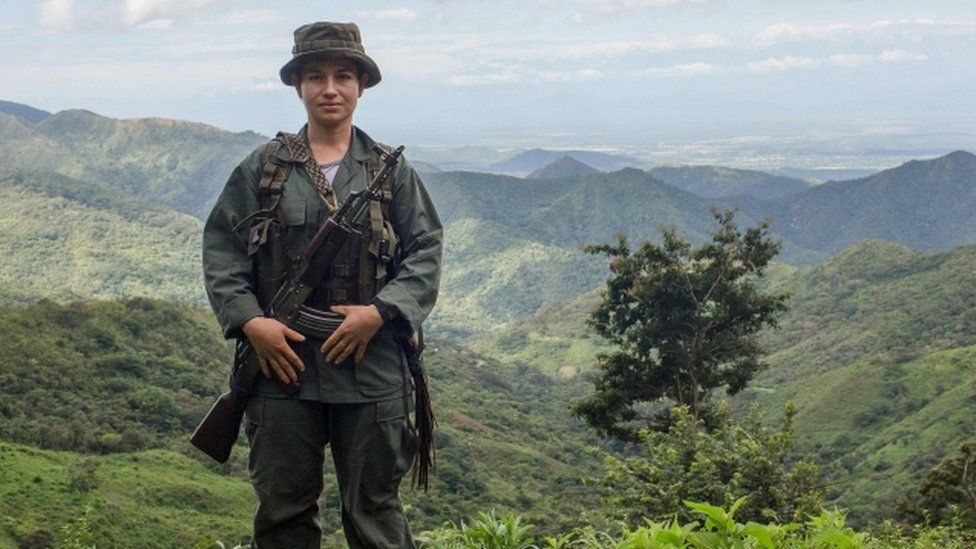Colombia: Farc expels five leaders who 'refused to accept peace'
- Published

Colombia's Farc rebel group has expelled five regional leaders for refusing to demobilise and join a peace process agreed with the government.
The Farc urged other members not to pursue "this futureless path."
Under the terms of the accord, the rebels will give up their armed struggle and become a political party.
There are concerns that many rebels would prefer to remain in the highly profitable cocaine smuggling business that the Farc controlled in some areas.
Profits from the production of cocaine and drug trafficking was used to finance the Farc's operations.
"The path of peace should not be hampered by a group of reckless people who, ignoring the yearnings of peace of the vast majority of our people, throw themselves off a cliff of personal ambition," said the Farc in a statement.
'Not following orders'
The five commanders were based in a jungle area in south-east Colombia.
Until a few days ago, the Farc says, they "performed tasks of command in the organisation."
They have been named as Gentil Duarte, Euclides Mora, John Cuarenta, Giovanny Chuspas and Julian Chollo.
One of them took part in the peace negotiations held in the Cuban capital, Havana, for nearly four years, Reuters news agency reported.
It is suspected that they might have left their base with a group of fighters, money and arms and that they were no longer following orders from the Farc central command, says the BBC's Natalio Cosoy in Bogota.
'Too lenient'
The agreement between the Colombian government and the Marxist rebel group is the culmination of four years of negotiations in Havana.
Their aim was to end a conflict that began in 1964 and has killed at least 220,000 people.
They reached a deal in July, but the Colombian people rejected it by a narrow margin in a referendum in October.
Opponents of the deal said it gave too many concessions to the Farc, including leniency for those who had committed crimes during the conflict.
New negotiations began immediately, including the Colombian opposition.
Colombian President Juan Manuel Santos and Farc leader Timoleon Jimenez better known as Timochenko signed a peace accord last month.
The opponents, led by former President Alvaro Uribe, say the revised deal is still too lenient on Farc leaders.
President Santos says the new accord takes into account changes demanded by opponents of the scheme.
- Published11 December 2016
- Published9 December 2016
- Published1 December 2016